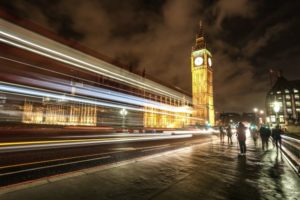A recent report by Crest Advisory in partnership with Birkbeck and the Police Foundation found that the emotional impact of online fraud for victims is often worse than the financial hit. In this blog Dr Bina Bhardwa, Senior Research Fellow at the Institute for Crime & Justice Policy Research (ICPR) at Birkbeck, drawing on findings from focus groups with the public, shares her vision for how we need a different approach to tackling online fraud.
Online fraud is an everyday ‘trip hazard’ that we have become, or are under pressure to become, better skilled at and (sadly) accustomed to navigating. The volume, sophistication, and constant barrage of fraud risks makes the task of filtering out this ‘background noise’ challenging and, most importantly, makes us ever more reliant on credible and trusted sources of information.
While most members of the public trust messaging from their banks, the occasional ‘fraud awareness’ training at work and household names such as Martin Lewis to keep them informed, much of their knowledge about fraud is derived from experiences shared by friends and family who have been victims of fraud or had near misses, and an avalanche of misinformation. The government’s latest anti-fraud campaign – Stop! Think Fraud – is a step in the right direction, but we know little as yet about its scope to bring about tangible change.
There was a perception among focus group participants we spoke to as part of a wider research project on Tackling Online Fraud that the police did not have the capacity to respond to volume fraud, especially where financial losses were thought of as insignificant and where more ‘serious’ crimes took precedence. This goes some way towards explaining the under-reporting of fraud. Deficiencies in the state’s capacity to protect its citizens from crime, means that responsibility for protecting oneself from online fraud threats rests largely with the individual.
Government fraud strategies, and the recommendations stemming from much of the research on fraud tend to centre, perhaps somewhat predictably, on three staples:
- more resources – usually aimed at bolstering the numbers and specialisms of investigators,
- forging and improving public-private partnerships, and
- better financial education.
Of course, these are important and worthy recommendations. However, what we see less of is how we can beg, borrow, and steal ideas and good practice from other areas of criminal justice, to daringly try something different. Drawing on two examples from the drugs field, I present, here, a case for applying models and methods from elsewhere to tackling online fraud.
Drug safety checking at festivals
Not without contention among the conservative, drug-safety checking services made their debut in the UK in 2018 at the Secret Garden Party and Kendal Calling music festivals, pioneered by The Loop. Since then, the model of drug testing has expanded its reach and support. The operating model is centred on providing non-judgmental, harm reduction advice to members of the public. Substances are voluntarily submitted to The Loop’s chemists who test them and then share risk and safety information with individuals based on the results. A further feature is the dissemination of live-time, in-situ safety information via social media channels, which communicate the risks of, for example, adulterants and high strength substances in circulation at an event.
The key tenets of the drug safety testing model – non-judgmental, led by experts, a feedback loop and the live dissemination of knowledge – could be imported to tackle online fraud. This would not in fact be new to fraud prevention, as it is the premise of Action Fraud Alert. However, the majority of the participants in our public focus groups had not heard of Action Fraud, let alone proactively signed up for alerts. Is this then a case for raising public awareness of Action Fraud or is it a call for a more trusted and effective national system for circulating topical alerts? For example, during the height of the ‘Hi Mum’ impersonation scams, the government – informed by National Fraud Investigation Bureau (NFIB) analysis of reports – could have disseminated alerts and safety messaging to the public, as the equivalent to providing non-judgmental, credible, harm minimisation drug safety advice in live time.
A ‘whole systems approach’ to tackling drug misuse
Catalysed by Dame Carol Black’s independent review of drugs which highlighted the damning impact of years of disinvestment in drug treatment services, the government has invested in rebuilding drug treatment and recovery services, taking a ‘whole of Government’, ‘whole systems approach’. While the government’s latest Drugs Strategy is not without its shortcomings[1], what is key here is shared responsibility for the ‘drug problem’.
Project ADDER (Addiction, Diversion, Disruption, Enforcement, Recovery) is an example of this approach. The £59 million programme involved law enforcement, treatment and recovery services working together in areas with the highest prevalence of Class A (heroin and crack cocaine) drug use and drug-related deaths. An unpublished evaluation of the programme found that the close cooperation between government departments, public sector enforcement services and voluntary sector treatment services, working towards the shared goal of combating drug misuse, produced positive outcomes, such as contributing to an increase in arrests for high harm individuals involved drug supply. Can we not do the same for combating fraud, e.g. taking a ‘whole systems’ approach to tackling high harm fraudsters? Focus group participants recognised that the police alone are largely powerless in the face of the ever-increasing volume and global reach of fraud. The Home Office, Department for Education, Department for Science, Innovation and Technology, Department of Health, and other relevant departments, in conjunction with private and voluntary sector, should work together to disrupt fraud, divert fraudsters who are caught and better understand mechanisms for recovery from the psychological and health harms of fraud. This would be an expansive ‘whole systems approach’ that is held to account and subject to evaluation.
The fact that fraud now makes up over 40% of all crime in England and Wales signals that it’s time for a different approach. However, there’s no need to reinvent the wheel: we can build on evidence of good practice from other areas of criminal justice. As demonstrated here, the drugs field offers a good starting point.
Further information








